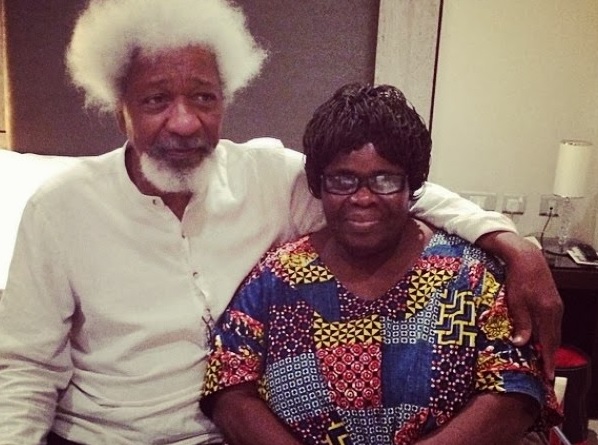
The literary genius of Ama Ata Aidoo
In interviews to screen potential writers, as the chief examiner in Citi Fm’s yearly Write-Away Contests of 10 to 14 years old, I ask, “Why do you write?” The answers invariably corroborate responses to similar questions posed to some of today’s outstanding writers and poets.
Advertisement
Early signs of genius
For Maya Angelou, the dedication to writing from an early age was to support “all the strong black birds of promise who defy the odds and gods and sing their songs.” Sylvia Platt noticed since the age of 15 that “There is a voice within me /That will not be still.”
When asked how her writing began, Ama Ata Aidoo reflected that "at the age of 15, a teacher had asked me what I wanted to do for a career and, without knowing why or even how, I replied that I wanted to be a poet. About four years later, I won a short story competition but learned about it only when I opened the newspaper that had organised it and saw the story had been published on its centre pages and realised the name of the author of that story in print was mine. I believe these moments were crucial for me because ... I had articulated a dream... it was a major affirmation for me as a writer, to see my name in print."
Since then and drawing on folklore, Aidoo's works of fiction particularly dealt with the tension between Western and African world views. Her leading characters are often women who defy the stereotypical African women's roles of their time.
Aidoo at Brown University
After nearly seven years on the Ivy League Brown University faculty (Providence, RI), Ama Ata Aidoo concluded her time there in December 2010. As a visiting professor of Africana Studies - in the company Prof. Anani Dzidzienyo (an Mfantsipim alumnus), Aidoo (from Wesley Girls High School, Cape Coast) left an impression on colleagues who paid gleaming tributes to her work, spirit and important contributions to the Brown community.
A celebration and tribute at Brown - dubbed “Conversations in Africana Writing: Ama Ata Aidoo” - attracted Tuzyline Jita Allan of Baruch College, CUNY, who said: To “take the African out of the African context ‘[is like taking] fish out of the water’. Wherever [Aidoo] is, she has to go back to Ghana – not lose her cultural identity – her Africaness – the nourishment. She is such a seeker of truth that she’s not blind to the flaws of tradition: that men are born and should occupy a place of hierarchy – that is not exactly suitable for Ama. [There’re] traditional aspects that need dismantling.”
In toasting to Aidoo, the chair of the Africana Studies at Brown University, Tricia Rose, alluded to the courage of Aidoo’s convictions: “In her mind and spirit is that larger commitment to a just world, to a sense of openness: A sense of possibility means that she encourages us to be willing to change even as we remain committed. And she speaks across generations in a rich way more so than anyone else I know. It’s been a real blessing having her here.”
Cambridge International Examinations
The Cambridge International Examiners (CIE) understandably feature African Prose (in Literature In English) from Chinua Achebe’s classic “Things Fall Apart” and Cyprian Ekwensi’s first novel, “People of the City”, among others.
CIE poetry selections include African Poetry by Charles Mungoshi and Nobel laureate Wole Soyinka, and others. For the genre of African Drama, it was most appropriate that in 2016, Aidoo’s plays “The Dilemma of a Ghost” and “Anowa” were included in the selections. In due course, it will be most fitting to feature “The Marriage of Anansewa” by Efua Sutherland.
As memorable collections, the CIE drama choices revealed the literary stamina, pathos and grace of black women in the tradition of Bessie Head (“When Rain Clouds Gather”) and Maya Angelou (“I know why the caged bird sings”). The selections explore pertinent issues about black women in modern societies, the strange mix of religion and superstition and other concerns ripe for unravelling in the 21st century. The African plays in particular, provide rich metaphors and other exotic figures of speech for the appreciation of African literary culture and values.
Aidoo’s new unpublished poetry, The Lady
“She was a woman once.
With lots of vim and push
grit, gumption and guts.
Great energies,
Loads of ideas, and not to mention
A decent dose of
Go-getting and daring-do.
She even tried to have it all
A good career in public spaces
A cosy bourgeois family.
That was clearly then.
She is a lady now.
Not for the
Indolence and the snobbery,
Or as the vain projector of the general and
Vane of others' dreams
Greed, desires and hates
But a fitting title
Earned through
The grace of age
Absolutely.
Her hair sits on her head,
With an ease rivaled only by
The straw hats
Her younger market sisters and daughters
Sport to protect themselves from
The beautiful but cruel tropics,
Bleached white by time and the merciless sun.
This is today's reality:
Eyesight compromised
Ankles swollen from nothing much ingested
Her voice a whisper that goes in tandem
With the shuffling gait...
But then, look down.
Her toes glitter and glow
In crimson impish glory
Ten unabashed
Stars that twinkle and laugh
Outrageously,
Lifting her head, her heart, her soul
And ours too.
Cheering her and all of us
Getting us to hope and sour.
O Lady, you glad me.”
Aidoo’s literary awards include the 1987 Nelson Mandela Award for Poetry and the 1992 Commonwealth Writers Prize for Africa. In 1995, the co-named Aidoo-Snyder Book Prize was established by the Women’s Caucus of the African Studies Association (ASA). In 1997, Aidoo established “Mbaasem” to promote Ghanaian and African women writers.




